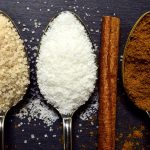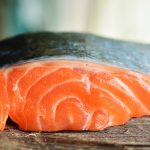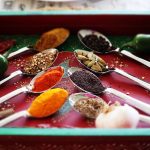Good mental health is important for all of us. We know ways to improve our mental health by taking breaks, going for walks, taking on hobbies etc. But, what you eat also has a significant affect on your mental strength.
We know the ‘go to’ mood boosters when you feel low – chocolate, booze, ice-cream etc. Whilst these may give you a temporary lift, the properties that uplift your mood can actually damage you long-term.
 Sugar is a prime culprit. You get a short-term mood lift, but sugar causes an imbalance in chemicals in your brain. These chemical imbalances can lead to depression or cause mood swings and raise feelings of anxiety. On top, excess consumption of sugar can of course cause obesity and tooth decay – in themselves these cause you to dislike your own appearance and can even result in quite serious clinical depression.
Sugar is a prime culprit. You get a short-term mood lift, but sugar causes an imbalance in chemicals in your brain. These chemical imbalances can lead to depression or cause mood swings and raise feelings of anxiety. On top, excess consumption of sugar can of course cause obesity and tooth decay – in themselves these cause you to dislike your own appearance and can even result in quite serious clinical depression.
Other culprits of mood-altering consumables include processed foods, additives, fried food and caffeine. It makes sense to cut down your consumption of these.
I’m not telling you anything you don’t already know. But, how do you wean yourself off the convenience of processed and fast food and cut out the addictive fats and sugars?
Firstly, increase your consumption of fresh fruit and vegetables. Fresh is best, but tinned and frozen fruit and vegetables are much better now than they used to be, and still contain the vitamins and minerals essential for your health. So if you can’t stretch to fresh, tinned and frozen is a good second-best.
 If you’re a fish eater, eat more Omega 3 rich fish such as sardines, trout, salmon and mackerel. For non-fish eaters, other foods high in Omega 3 include walnuts, chia seeds, soybean oil, plus foods specifically fortified with Omega 3 (this will be declared on the food packaging). Dietary supplements are also available.
If you’re a fish eater, eat more Omega 3 rich fish such as sardines, trout, salmon and mackerel. For non-fish eaters, other foods high in Omega 3 include walnuts, chia seeds, soybean oil, plus foods specifically fortified with Omega 3 (this will be declared on the food packaging). Dietary supplements are also available.
Increase your consumption of green leafy vegetables, beans and lentils, brazil nuts, eggs and yes dark chocolate, but not milk chocolate.
Protein is essential to keep your brain regulated and helps you to feel fuller for longer. Ideally, look for low-fat proteins including vegetarian versions. Protein doesn’t have to mean meat. Quorn and soya foods are high in protein, low in fat and available anywhere these days.
It’s important to maintain your blood sugar levels, as a drop causes you to feel irritable, tired and can cause depression.  To avoid blood sugar drops, eat regularly but also choose slow-release energy foods such as rice, pasta, wholegrain breads, cereals, nuts and seeds. Avoid sugary food and drink, to avoid blood sugar fluctuations.
To avoid blood sugar drops, eat regularly but also choose slow-release energy foods such as rice, pasta, wholegrain breads, cereals, nuts and seeds. Avoid sugary food and drink, to avoid blood sugar fluctuations.
Breakfast is an often missed meal but it’s actually one of the most important. Take time to eat something at the start of your day. This kick-starts your metabolism and helps your brain function as well as staving off a blood sugar drop, which often results in poor snacking mid-morning.
So, we know what we should be eating. But, we’re not angels and so let’s also be practical. Lives are busy. We want warming comfort foods that are healthy and quick to make. Preferably also cheap to purchase ingredients.
Have a think of the meals you eat now, and how you can replace the unhealthy with comparable but healthy alternatives.

Takeaway burgers – in the time it takes for you to order and receive (or collect) your burger, you could easily have made one at home, usually cheaper too. Making your own burgers is simple, and you know exactly what’s going into them.
Basic burger recipe:
- 500g mince (your choice of beef, pork, turkey or vegi)
- 1 small onion, finely chopped
- 1 egg
- Salt & pepper (plus any herbs or spices you would like)
Method:
In a bowl, add the onion, egg and seasonings into the mince and mix to blend them together – it’s best to just use your hands to do this.
Scoop a quarter of the mixture* and roll into a ball in the palm of your hand. Then flatten to a patty of the depth you want. *This mince quantity will make 4 chunky burgers or make thinner/smaller burgers and achieve 6 or even 8 burger patties.
Once you’ve made your patties, lay them on a plate or tray and rest them in the fridge to firm for around half an hour. Once sufficiently rested, fry, grill or barbeque your burger. Oil the burger rather than the pan for the best results. For an inch-deep burger, cook for around 5 minutes on each side.
Once cooked, allow the burgers to rest for a minute or two for the juices to settle.
Choose your burger roll – wholemeal, white, brioche buns. Some people like to gently toast the roll, others prefer them softer.
Build your burger to your own taste – suggestions include lettuce, tomato, onion, cheese, pickles, sauce (ketchup, mayonnaise, BBQ, curry, burger relish etc).
Once you begin making your own burgers, and play with the seasonings you like, you’ll notice the difference. They’re much better for you, and more filling than the ‘fast food’ takeaways.
Curries – there are so many curry recipes online now, from the simplest to complex, there’s almost no excuse. You can make a curry with your favourite protein – any meat, fresh vegetables, fish or vegetarian proteins. Whilst buying a jar of sauce is quick and simple, it’s very easy and far healthier to make your own. I previously provided an Aloo Muttar recipe in my blog https://scottishfarmhousekitchen.com/lockdown-2020/
 I recommend keeping a basic stock of spices to hand ready. A little pestle and mortar means you can create your own curry powder/paste for your own signature dish. A simple spice mix would be equal quantities of brown sugar, cinnamon, cloves, nigella seeds, turmeric, cumin, coriander, cardamom and garam masala. Grind any non-powdered spice (eg cumin seeds) to a powder with a pestle and mortar, and mix all the powders together. When using your home-made curry powder, you can add heat by including fresh chopped chillies, or dried chilli powder. You can use a tinned tomato base or a creamy one with coconut milk. Ensure you cook the spices for a minute or two in oil to release the aromas, but don’t allow them to burn before you add in your chosen liquid.
I recommend keeping a basic stock of spices to hand ready. A little pestle and mortar means you can create your own curry powder/paste for your own signature dish. A simple spice mix would be equal quantities of brown sugar, cinnamon, cloves, nigella seeds, turmeric, cumin, coriander, cardamom and garam masala. Grind any non-powdered spice (eg cumin seeds) to a powder with a pestle and mortar, and mix all the powders together. When using your home-made curry powder, you can add heat by including fresh chopped chillies, or dried chilli powder. You can use a tinned tomato base or a creamy one with coconut milk. Ensure you cook the spices for a minute or two in oil to release the aromas, but don’t allow them to burn before you add in your chosen liquid.
An added bonus – if you buy some pretty little jars (or save from chutneys and jams) you can make up your own curry spice mixes as gifts – eg carefully layering each spice, insert a cinnamon stick and sprinkle on top with some thinly sliced fresh chilli. Add a ribbon and home-made label confirming the ingredients. You could even attach a hand-written recipe as an extra touch.
As well as the health improvements of selecting suitable ingredients, avoiding or reducing your intake of processed foods and additives, and saving yourself some money, the mindful act of cooking helps promote positive mental health.
Don’t forget to drink plenty water throughout the day too. Keeping hydrated aids concentration and helps you think clearly. Try to avoid all your water intake being coffee and tea, although decaffeinated versions can help.
My healthy eating advice isn’t a replacement for professional medical treatment, but a guide to easy steps you can take to help yourself. If you have any concerns about your own mental or physical well-being please consult your GP.
Here’s to a healthy 2022; stay safe, stay healthy and enjoy your cooking experience.
Love
Maggie x

